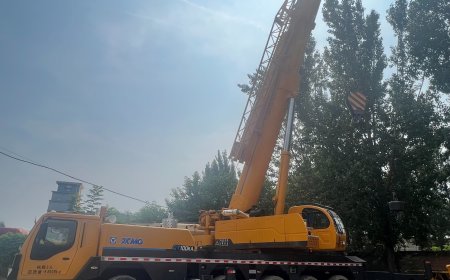Prewiring vs Low Voltage Understanding Contractor Roles in Smart Home Projects
In the world of smart home projects, understanding the roles of various contractors is crucial. As technology becomes more integrated into our daily lives, the need for specialized contractors who can handle the complexities of smart home systems is on the rise.

In the world of smart home projects, understanding the roles of various contractors is crucial. As technology becomes more integrated into our daily lives, the need for specialized contractors who can handle the complexities of smart home systems is on the rise. Two key players in this arena are home prewiring contractors and low voltage contractors. But what exactly do they do, and how do they contribute to making your smart home dreams a reality? In this article, we'll break down their roles and explain why their expertise is essential for successful smart home installations.
Before diving into the specifics of contractor roles, it's important to understand why smart home services are becoming increasingly popular. Smart homes offer convenience, security, and energy efficiency, allowing homeowners to control lighting, heating, security systems, and more through their smartphones or voice commands. This technology not only enhances the quality of life but also adds value to properties. By integrating smart home systems, homeowners can enjoy personalized environments tailored to their preferences and routines.
Moreover, the shift towards smart home technology is driven by the growing demand for sustainability. Smart homes can significantly reduce energy consumption through automated systems that optimize energy use. For instance, smart thermostats adjust heating and cooling based on occupancy patterns, and smart lighting systems ensure lights are only on when needed. However, achieving a fully functional smart home requires careful planning and the right expertise. This is where specialized contractors come into play, ensuring all systems are integrated and function seamlessly.
What is Prewiring?
Definition and Purpose
Prewiring involves installing the necessary wiring for electrical and communication systems before the walls are closed up during construction. This step is crucial for integrating smart home technologies seamlessly. Prewiring ensures that all the cables and wires needed for various smart devices are in place, reducing the need for invasive drilling and wiring later on. This not only saves time and money but also minimizes disruption to your homes structure and aesthetics.
Prewiring also provides the backbone for a scalable smart home infrastructure. As technology evolves, having a prewired home allows for easier upgrades and integration of new devices. Whether it's adding more security cameras, installing a sophisticated home theater system, or expanding the network capacity, prewiring offers the flexibility to accommodate future needs without extensive renovations.
The Role of Home Prewiring Contractors
Home prewiring contractors specialize in planning and installing the wiring infrastructure required for smart home systems. They work closely with builders and homeowners to determine the best locations for wiring and ensure that everything is set up correctly from the start. Their responsibilities include:
-
Assessing the layout of the home to determine wiring needs, which involves understanding the homeowner's current and future technology requirements.
-
Running cables for internet, audio, video, and security systems, ensuring that all wires are neatly concealed and accessible for future maintenance or upgrades.
-
Coordinating with electricians and other contractors to ensure compatibility between traditional electrical systems and modern smart technologies.
-
Future-proofing the wiring setup for potential technology upgrades, advising homeowners on the latest trends and innovations in smart home technology to ensure long-term satisfaction.
Understanding Low Voltage Systems
Low voltage systems operate on a lower electrical current than standard household wiring, typically under 50 volts. These systems are used for specific smart home features like security cameras, audio systems, and home automation devices. Low voltage wiring is safer, more energy-efficient, and less invasive than traditional wiring. It allows for the integration of a wide range of devices without the risk associated with high-voltage electricity.
The versatility of low voltage systems makes them ideal for smart homes. They can power everything from network connections to sophisticated home automation systems, providing a seamless user experience. Additionally, the use of low voltage systems can significantly reduce energy costs and increase the safety of home electrical installations, making them a smart choice for eco-conscious homeowners.
The Role of Low Voltage Contractors
Low voltage contractors near me are specialists in installing and maintaining these systems. Their expertise is vital for ensuring that all smart home devices function properly. Key duties of low voltage contractors include:
-
Installing wiring for home theater systems, security cameras, and data networks, ensuring all components are correctly integrated for optimal performance.
-
Configuring and testing smart home devices to ensure they work seamlessly, providing users with an intuitive and hassle-free experience.
-
Troubleshooting and maintaining low voltage systems, offering ongoing support to address any issues and ensure longevity and reliability.
-
Providing guidance on the best products and technologies for the homeowner's needs, staying informed about the latest advancements to recommend future-proof solutions.
Collaboration Between Contractors
Coordinating Efforts for a Successful Installation
In smart home projects, collaboration between prewiring and low voltage contractors is essential. They must work together to ensure that all systems are compatible and that the installation process is smooth. This collaboration often involves:
-
Joint planning sessions to align on project goals, ensuring all team members understand the homeowner's vision and requirements.
-
Sharing blueprints and diagrams to map out wiring and device placement, facilitating a coordinated approach to installation that avoids conflicts and overlaps.
-
Coordinating schedules to avoid conflicts and ensure timely completion, optimizing workflow to minimize delays and disruptions.
The synergy between these contractors ensures that all components of the smart home system are perfectly aligned, creating a cohesive and efficient technological ecosystem.
The Role of General Contractors
by Sable Flow (https://unsplash.com/@sableflow)
General contractors oversee the entire construction project, including smart home installations. They ensure that all contractors, including prewiring and low voltage specialists, work in harmony. Their responsibilities involve:
-
Managing project timelines and budgets, balancing the needs of various stakeholders to deliver the project on time and within financial constraints.
-
Communicating with homeowners about project updates, providing clarity and transparency throughout the construction process.
-
Ensuring compliance with building codes and safety regulations, safeguarding the integrity and safety of the construction project.
-
Resolving any issues that arise during the installation process, acting as a liaison between various contractors to maintain project momentum and address challenges swiftly.
Finding the Right Contractors
Tips for Choosing Home Prewiring Contractors
When selecting a home prewiring contractor, consider the following tips:
-
Look for contractors with experience in smart home projects, ensuring they have the necessary skills and knowledge.
-
Check references and reviews from previous clients, gaining insights into their reliability and quality of work.
-
Ensure they are licensed and insured, protecting yourself from potential liabilities and ensuring professional standards are met.
-
Discuss your specific needs and expectations before hiring, ensuring alignment on project goals and outcomes.
Tips for Choosing Low Voltage Contractors
Similarly, when choosing a low voltage contractor, keep these points in mind:
-
Verify their expertise in the specific systems you want installed, ensuring they can deliver the desired functionalities.
-
Ask about their familiarity with the latest smart home technologies, ensuring they are up-to-date with current trends and innovations.
-
Inquire about their maintenance and support services, assessing their ability to provide ongoing assistance and troubleshooting.
-
Compare quotes from multiple contractors to ensure competitive pricing, balancing cost with quality to achieve the best value.
Conclusion
Smart home projects require a team of skilled contractors who understand the intricacies of modern technology. By working with experienced prewiring and low voltage contractors, you can ensure that your home is equipped with the latest smart systems, enhancing your lifestyle and increasing your property's value. Remember, the key to a successful smart home installation lies in the careful selection and coordination of your contractor team. With the right professionals on your side, your smart home dreams can become a reality. Embrace the future of home living with confidence, knowing that your technological investment is in expert hands.




























